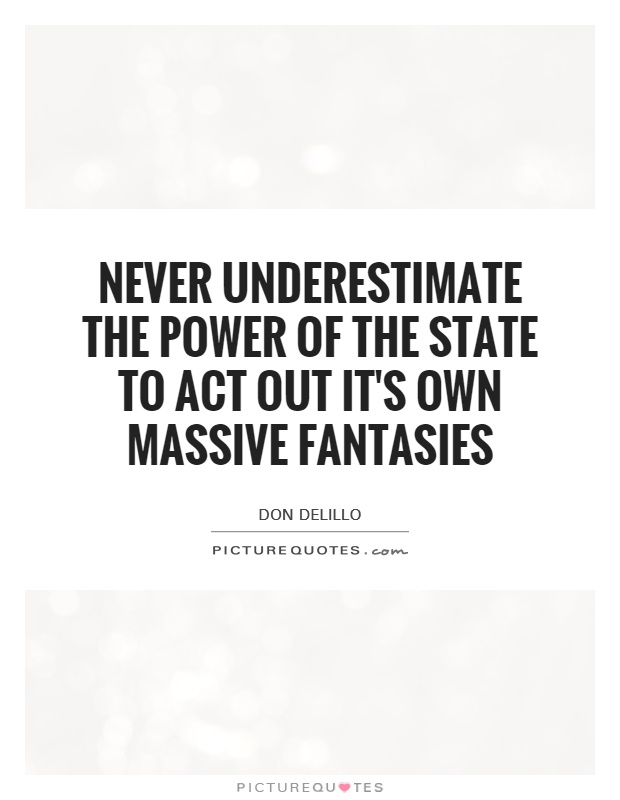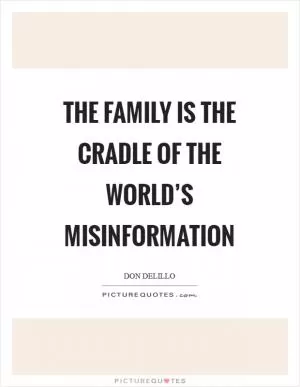Never underestimate the power of the State to act out it's own massive fantasies

Never underestimate the power of the State to act out it's own massive fantasies
In the world of Don DeLillo's novels, the power of the State to act out its own massive fantasies is a recurring theme that reflects the author's deep skepticism of government institutions and their ability to control and manipulate society. DeLillo's works often explore the ways in which the State uses its power to shape reality, often with disastrous consequences for individuals caught in its web.One of DeLillo's most famous novels, "White Noise," delves into the idea of the State's ability to create and perpetuate its own narratives and fantasies. The novel follows the protagonist, Jack Gladney, a professor of Hitler studies at a small liberal arts college, as he navigates a world dominated by consumerism, media saturation, and the looming threat of a toxic cloud known as "the airborne toxic event." Throughout the novel, the State is portrayed as a monolithic entity that exerts control over every aspect of society, from the products people consume to the information they receive.
In "White Noise," the State's power to act out its own fantasies is most evident in the way it manipulates fear and uncertainty to maintain its grip on the population. The airborne toxic event, for example, is a manufactured crisis that serves as a distraction from the real issues facing society. By creating a sense of impending doom, the State is able to keep people in a state of constant anxiety and dependence on its authority.
DeLillo's novel "Underworld" also explores the State's ability to shape reality through its own fantasies. The novel spans several decades of American history, from the Cold War to the aftermath of 9/11, and follows a diverse cast of characters whose lives intersect in unexpected ways. Throughout the novel, the State is portrayed as a shadowy force that operates behind the scenes, manipulating events and shaping the course of history to suit its own interests.












 Friendship Quotes
Friendship Quotes Love Quotes
Love Quotes Life Quotes
Life Quotes Funny Quotes
Funny Quotes Motivational Quotes
Motivational Quotes Inspirational Quotes
Inspirational Quotes